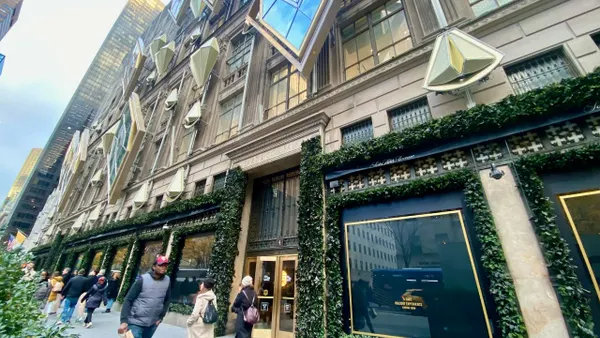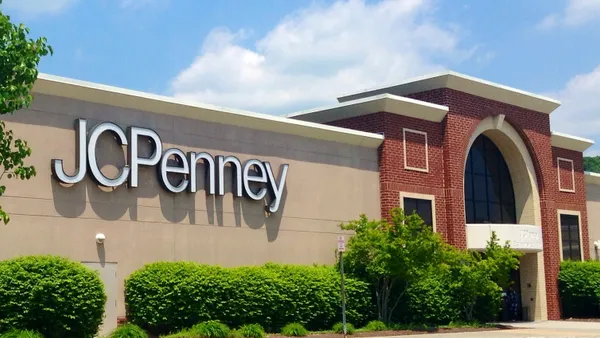Dive Brief:
- Stein Mart reached a deal to be acquired and taken private by Kingswood Capital Management for 90 cents per share, according to a press release. The bid represents a 38% premium on the company's stock price.
- The deal would be financed with debt provided by Wells Fargo, National Association and Pathlight Capital, as well as equity from Kingswood. An entity run by Jay Stein, the retailer's chairman and grandson of the founder, will contribute equity and indirectly own one-third of Stein Mart after the deal closes.
- The transaction is subject to closing conditions and a shareholder vote. The company expects the deal to close in the first half of 2020.
Dive Insight:
It's been about two years since Stein Mart first signaled that it was exploring its "strategic alternatives," which is often code for a possible sale process. Since then, the company has joined several other publicly traded retailers that have faced the threat of a stock de-listing because of plummeting share values.
In recent years, Stein Mart has worked to improve its merchandise, reduce inventory, cut costs and add services like ship from store. Hoping to drive traffic, it has also installed self-service Amazon Hub Lockers in hundreds of stores, and it teamed up with Oracle to streamline planning and forecasting for its stores, e-commerce site and warehouses.
But Stein Mart's sales are still falling. By early November, they were down 3.7% year-to-date, to $882.7 million, comparable sales were down 1.9%, and the company had generated a $10.2 million loss. Net sales have fallen every year since fiscal 2016.
Going private, in theory, can reduce much of the scrutiny and pressure on the retailer to turn itself around, freeing it up to invest in the long-term. But a debt-fueled buyout also represents a major risk to Stein Mart in the coming years.
Recent history is littered with retailers that have struggled, gone bankrupt and liquidated because debt servicing ate into profits and working capital. And a significant chunk of those retailers were leveraged buyouts by private equity firms.
Nearly half of the major retail bankruptcies in 2019 tracked by Retail Dive were private equity acquisitions, according to Retail Dive analysis. Looking at retailers that have gone through a private equity acquisition since 2002, 22% have gone through a bankruptcy.












